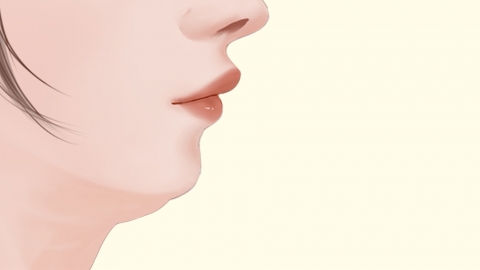What can be done about having a double chin?
Generally speaking, a double chin refers to fat accumulation in the submandibular area. Submandibular fat accumulation may be related to subcutaneous fat accumulation, skin laxity, bone structure, hypothyroidism, Cushing's syndrome, and other factors. It is recommended to seek timely medical advice and undergo treatment under a doctor's guidance. Detailed analysis is as follows:

1. Subcutaneous Fat Accumulation
Unhealthy lifestyle habits such as high-calorie diets and lack of exercise can easily lead to fat accumulation in the submandibular area. Liposuction may be used under a doctor's guidance for treatment. This procedure uses negative pressure suction to remove excess fat tissue from the submandibular area, thereby reducing fat accumulation and improving facial contours. The general reference price for liposuction is 5,000–20,000 yuan per session. Improvement is typically noticeable 1–3 months after surgery, although localized swelling and pain may occur.
2. Skin Laxity
Skin aging and collagen loss can lead to decreased skin elasticity, causing the submandibular skin to sag and droop. Radiofrequency skin tightening may be recommended by a doctor for treatment. This procedure uses radiofrequency energy to target the deeper layers of the skin, stimulating collagen regeneration and enhancing skin tightness. The general reference price for radiofrequency skin tightening is 3,000–10,000 yuan per session. Improvement is typically noticeable 3–6 months after treatment, although mild redness, swelling, or dryness may occur.
3. Bone Structure
Underdeveloped mandible or a receding chin can lead to insufficient support in the submandibular area, resulting in fat accumulation. Chin augmentation may be performed under medical advice, involving injection of hyaluronic acid or autologous fat to enhance chin fullness and support, thereby improving facial contours. The general reference price for chin augmentation is 3,000–20,000 yuan per session. Improvement is typically noticeable within 1–2 weeks after the procedure, although mild swelling and pain may occur.
4. Hypothyroidism
Hypothyroidism is commonly caused by autoimmune diseases, thyroid surgery, or other factors. Insufficient secretion of thyroid hormones leads to slowed metabolism, resulting in fat accumulation in the submandibular area. Symptoms typically include weight gain, fatigue, and dry skin. Treatment usually involves medications such as levothyroxine sodium tablets, thyroid tablets, and methimazole tablets, as directed by a physician.
5. Cushing's Syndrome
Cushing's syndrome is typically caused by dysregulation of the hypothalamic-pituitary-adrenal axis. Excessive secretion of glucocorticoids by the adrenal cortex leads to fat redistribution, resulting in submandibular fat accumulation. Common accompanying symptoms include moon face, buffalo hump, and hypertension. Treatment typically involves medications such as aminoglutethimide tablets, ketoconazole cream, and mifepristone tablets, as directed by a physician.
In daily life, it is important to adjust dietary habits and reduce the intake of high-calorie, high-fat foods to minimize fat accumulation and maintain overall health.







